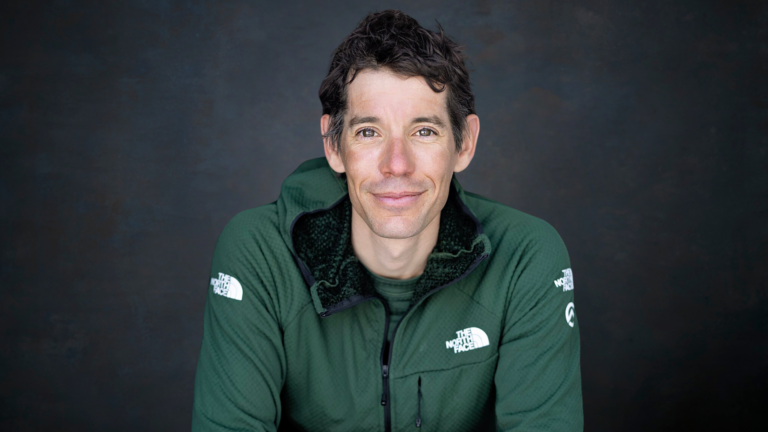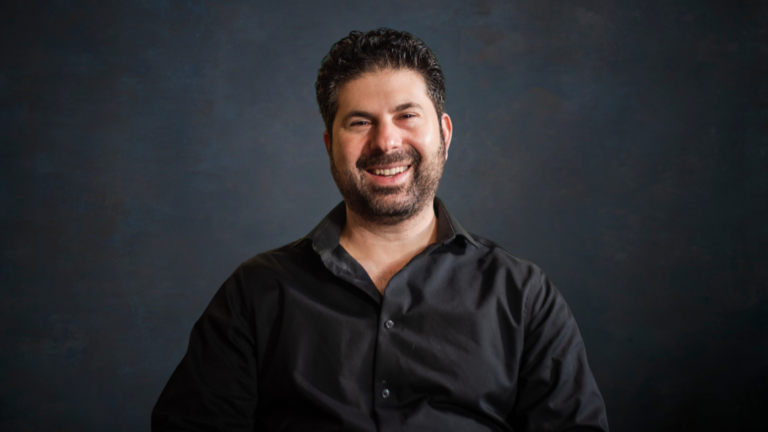This week’s conversation is with Mark Manson, the #1 New York Times Bestselling author of Everything is F*cked: A Book About Hope and The Subtle Art of Not Giving a F*ck: A Counterintuitive Approach to Living a Good Life, the mega-bestseller that reached #1 in fourteen different countries.
Mark’s books have been translated into more than 50 languages and have sold over 12 million copies worldwide.
He runs one of the largest personal growth websites in the world, MarkManson.net, a blog with more than two million monthly readers and half a million subscribers, making him one of the largest and most successful independent publishers in the world.
Mark’s writing is often described as ‘self-help for people who hate self-help’ — a no-BS brand of life advice and cultural commentary that has struck a chord with people around the globe.
And the same can be said for this conversation – it’s a no BS, candid look into Mark’s upbringing, what inspired him to start writing, and why he’s a fervent believer of getting to the truth.
“You could argue that the process of growth is just learning to lie to yourself less. Learning to hide fewer parts of reality from yourself. That’s a very strong belief that I have.”
In This Episode:
What was childhood like?
The joke I always make is that people, where I grew up, worship two things, football and Jesus, in that order. I was terrible at football, and I didn’t get the Jesus thing. And so, that ended up with me being pushed into a significant amount of lockers. My parents divorced, and I got into drugs and loud music. It was a downward spiral from there. So, it was a pretty angry and lonely adolescence, I suppose.
What caused that loneliness?
I think it was just not being accepted. I was into weird thing. I was into computers, when I was super young. And I was into reading about philosophy, and I had interest in different cultures and religions. And that wasn’t respected, where I grew up. That was looked on as suspicious, as like you were doing the wrong thing. And so, I think there was a little bit of heartbreak with that, of just being rejected, I guess.
The central theme of his work
There’s a certain amount of adversity that we need, and that we need to seek out, to remain mentally and emotionally healthy as individuals. And as a corollary to that, a huge thrust of my work is this culture of entitlement that I see across the entire political spectrum. I see it across all age groups. It manifests itself differently with different age groups, in different parts of the political spectrum, but it’s, they’re all a bunch of fucking snowflakes. There’s just this sense that we no longer, we don’t deserve to be stressed or hurt in any way, ever, ever again. And if you do, then this is tyranny, and blah, blah, blah, blah, blah. And it’s like, “No, man, that’s not how life works. And, oh, by the way, when you actually go to parts of the world where people actually do have problems, it gives you perspective, for sure.”
Why acute stress is a good thing
If you’ve got a life that’s cushy and easy, and everything’s given to you, and everything’s on demand, and the customer is always right, and all this stuff. It’s like when something actually difficult comes along, you’re unequipped to handle it. Figuratively, your mind buckles under the weight, under the pressure, because it hasn’t worked up to it. What did you do with the client? Did you do anything?
Everything is a sacrifice
A lot of us, we don’t realize the ways in which we’re not being honest with ourselves. I think one of the ways that we tend to be dishonest with ourselves is that we don’t recognize the sacrifices for pitfalls with the choices we make. The human mind seems to automatically be able to dilute itself into believing that it’s only going to get the benefits and none of the costs, when making a decision. So much of my work is just trying to point that out to people. I think it’s such a basic assumption in our culture these days, that it’s like you can have all the benefits with none of the costs. You can have everything that’s good without the bad.
How to become more honest with yourself
You should have a little obnoxious three-year-old in the back of your head, who’s constantly asking, “Why?” About everything. Because I think you’re right, I think that everybody does care about something. Everybody has adopted some sort of worldview or a philosophy, whether they… The problem is, most people don’t recognize what they’ve adopted, or they’re not aware of which values they’ve adopted.
The Subtle Art of Not Giving a Fuck
This book is about values, and it’s not my job to tell people what their values should be. My job is to simply help them ask better questions, define their values themselves. I’m not going to… I don’t want to push my philosophy, or how I see the world on to anybody. Because I feel like that undermines the power of the message, which is, ‘No, you have to choose yourself. You have to choose what you care about. You have to. You have no choice. It’s human being 101.
Why does he think the book was so popular?
I felt very strongly that people, particularly millennials and young people, did not buy into the classic Tony Robbins, everybody can be great, unleash your potential, here are five tips that will make everybody successful. My generation understood that that was bullshit, “You’re just selling me something.” And I recognize that a lot of my success online was that I was presenting good self-help advice. And a lot of cases, the exact same self-help advice, but I was packaging it in a much more realistic and honest way. Of like, “Look, your life’s going to suck sometimes. We’re all mediocre. You’re not going to be great, most likely, at a lot of things you do. So, just get comfortable.” Blah, blah, blah. It really resonated with that generation. I noticed there was a real hunger within the self-help industry for that kind of just blunt honesty. People were sick of the marketing message.
What are his thoughts on FOPO (The Fear of Other People’s Opinions)
You’re supposed to care what other people think. There is a name for a person who literally does not care what anybody else thinks, and it’s psychopath. Let’s start out by being very clear about our destination, or where we’re trying to get to. We’re not trying to be psychopaths here. You should care what people think. You should be sensitive to other people’s feelings. The question is, what is that proportion… How much clout or emphasis are you putting on other people’s opinions versus your own? And generally, people who struggle a lot with this issue, it’s because they really overemphasize the thoughts and feelings of other people, and they really under-emphasize their own. They undervalue themselves in a lot of ways, and they overvalue the opinions and thoughts of other people. And so, the question is simply, how do you bring balance to that?
How to limit FOPO
There are a number of ways to attack it. One is to simply cut out exposure to a lot of harmful and unhealthy influences and opinions. One is to go to do internal work. To investigate, why do I not put my own needs first? Why do I consistently not take care of myself and try to find what are the patterns there? A lot of times it’s, people experience it as, I cared too much what other people think, but maybe it’s one very dysfunctional relationship in their life that is poisoning everything else that’s going on. Maybe a parent, or a sibling, or a partner, or something, and that needs to be resolved. So, it’s like going to the doctor and saying, “I have a headache.” It can be a dozen different things. And you have to dig deeper to see where it’s coming from. Also, at the same time, it’s, you don’t want to get rid of headaches forever, because headaches lets you know that something’s wrong.
If he could sit down with one master who would it be and what would he ask?
Bill Gates… I think I would say, “Can I just watch you tackle a problem? And just show me what you’re reading, show me what you’re researching, show me the questions you’re asking.” I would just want to be like a birdie on his shoulder as he attacks a problem, and just see how he goes about it. What his process is.
His purpose…
To disrupt the self-help industry and present a much healthier approach to wellbeing. Emotional and mental wellbeing.



